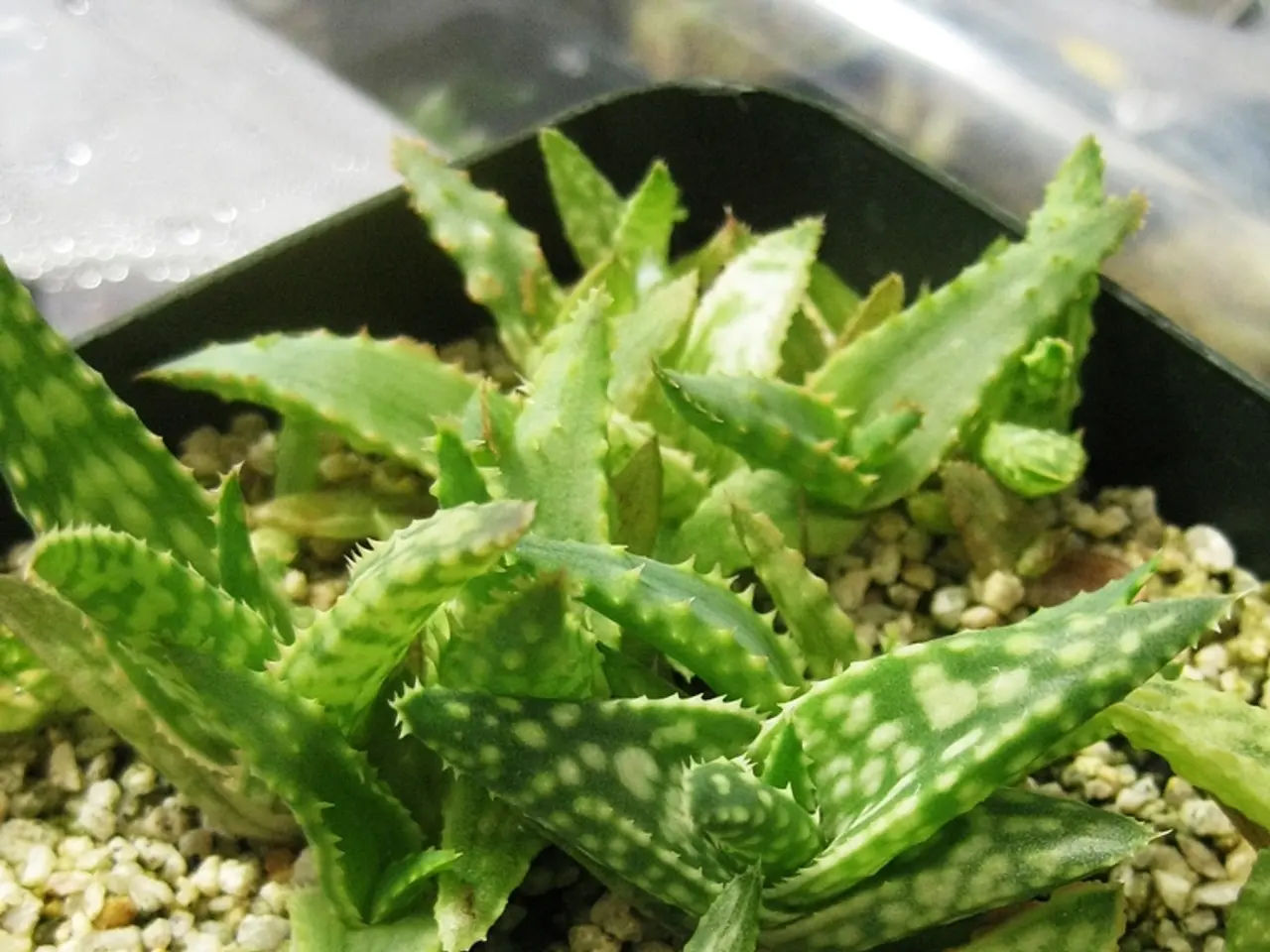Natural Solution for Oral Hygiene: Aloe Vera as an Effective Mouthwash
Aloe vera, a plant long known for its healing properties, has found a significant role in oral hygiene products. Its chemical composition, rich in polysaccharides, proteins with 18 amino acids, vitamins, minerals, and biogenic stimulants, makes it an ideal ingredient for maintaining oral health.
This succulent plant offers a host of benefits for oral care. Aloe vera can help reduce gum bleeding and inflammation, key signs of gum diseases like gingivitis and periodontitis. It also inhibits plaque buildup on teeth, potentially preventing cavities and gum infections.
Moreover, aloe vera acts as a natural alternative to synthetic antimicrobials, offering fewer side effects such as staining or altered taste. It is often used in mouthwashes, gels, and topical applications to soothe gums, reduce gingivitis symptoms, and promote healing.
The holistic approach to oral care involving aloe vera integrates its natural antimicrobial and anti-inflammatory actions with overall oral hygiene practices. This approach emphasizes not just symptom masking but restoration of oral tissue health and microbial balance through natural ingredients. Aloe vera's gentle but effective modality fits well within holistic care, serving as a complementary agent alongside mechanical cleaning and other natural antimicrobials.
Aloe vera's benefits extend beyond oral health. It has wound-healing, disinfecting, and anti-inflammatory properties in the mouth, making it beneficial for soothing mouth sores or sensitive areas. Additionally, it is used in skin care and sun protection products, demonstrating its versatility as a natural ingredient.
The popularity of holistic beauty and health is on the rise, with implications in various sectors, including oral hygiene. Consumers are seeking natural ingredients with diverse benefits, such as natural emollient activity, probiotic and postbiotic action, or anti-inflammatory properties. Aloe vera, with its anti-inflammatory, antiviral, and antiseptic properties, is a prime example of such an ingredient.
Aloe vera's antibacterial power comes from cinnamic acid, one of its six antiseptic agents. Its main polysaccharide, glucomannan, contributes to soothing, calming, and healing of lesions, reducing inflammation. Furthermore, aloe vera has purifying properties that can prevent cavities and protect tooth enamel. It also acts as an anesthetic, soothing all types of pain, and can help stop itching.
In conclusion, incorporating aloe vera-based products into oral hygiene care can be especially beneficial for those seeking more natural, non-toxic options for maintaining oral health, managing gum sensitivity, and preventing periodontal disease in a supportive, integrative manner. The ECO Aloe Vera Gel, for instance, is a product that leverages the power of aloe vera for oral and skin care. As the demand for holistic health solutions continues to grow, the potential of aloe vera in the oral hygiene market is strong.
- Aloe vera's use isn't limited to oral hygiene; it extends to various domains, such as health-and-wellness, skin-care, and home-and-garden, as its healing and soothing properties make it a valuable ingredient.
- The rise in holistic beauty and health trends has led consumers to seek natural ingredients with diverse benefits, like aloe vera, which offers anti-inflammatory, antiviral, and antiseptic properties.
- Apart from its benefits in maintaining oral health, aloe vera is also used in food-and-drink for healthy-cooking due to its antibacterial power and antioxidant properties.
- In line with the holistic approach to oral care, fitness-and-exercise enthusiasts may find aloe vera beneficial for muscle recovery, as its anti-inflammatory properties can aid in reducing inflammation and supporting healing.
- Nutritionists and cooking enthusiasts embrace aloe vera in various recipes, as it adds a hint of gelatinous texture while contributing goodness to food, supporting one's lifestyle goals for a healthier diet.








